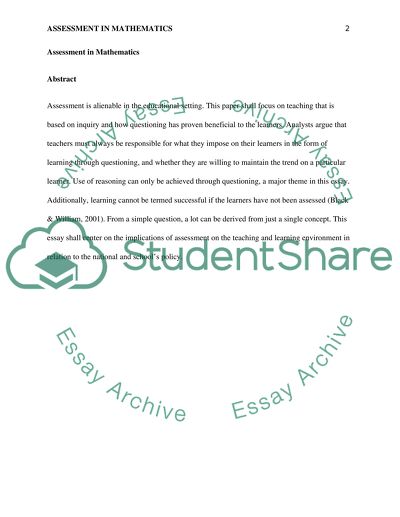Cite this document
(“Assessment in Mathematics Essay Example | Topics and Well Written Essays - 2750 words”, n.d.)
Retrieved from https://studentshare.org/education/1396851-assessment-in-mathematics
Retrieved from https://studentshare.org/education/1396851-assessment-in-mathematics
(Assessment in Mathematics Essay Example | Topics and Well Written Essays - 2750 Words)
https://studentshare.org/education/1396851-assessment-in-mathematics.
https://studentshare.org/education/1396851-assessment-in-mathematics.
“Assessment in Mathematics Essay Example | Topics and Well Written Essays - 2750 Words”, n.d. https://studentshare.org/education/1396851-assessment-in-mathematics.


